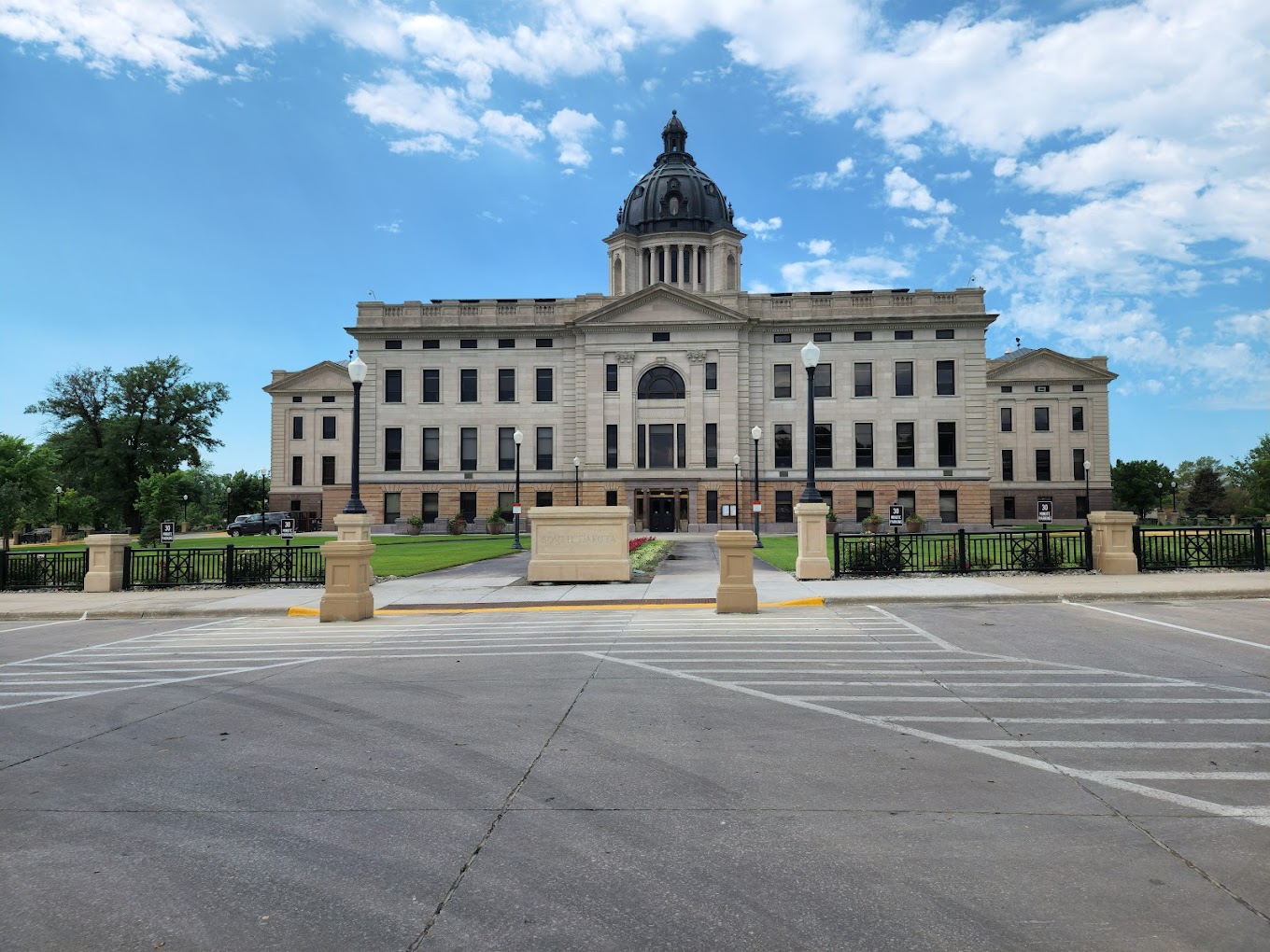The South Dakota eviction laws underwent an update in 2023, bringing changes and additions to the existing regulations. These modifications aim to ensure a fair and balanced approach in the landlord-tenant relationship, offering protection to both parties involved. Understanding the details of this update is crucial for landlords and tenants in South Dakota to navigate the eviction process effectively.
The updated South Dakota eviction laws introduce key provisions that cover various aspects of tenancy. These provisions include rental agreement requirements, notice requirements for termination of tenancy, grounds for eviction, and the eviction process itself. Landlords and tenants should familiarize themselves with these provisions to ensure compliance and avoid any legal complications.
The 2023 update in the South Dakota eviction laws was prompted by the need to address evolving issues and concerns in the rental market. It reflects the changing dynamics of landlord-tenant relationships, aiming to strike a balance between the rights and responsibilities of both parties. By implementing these changes, the state of South Dakota aims to create a fair and transparent framework for eviction proceedings.
It is important for landlords and tenants to be aware of their rights and responsibilities under the updated eviction laws. The update brings significant implications for both parties. It provides enhanced protection for tenants, ensuring that they are treated fairly during the eviction process. Landlords, on the other hand, need to adhere to the revised regulations and follow the proper procedures to avoid any legal repercussions.
To navigate the South Dakota eviction laws effectively, landlords and tenants can access various resources. Official copies of the updated eviction laws can be found through official channels. Legal aid services are available for tenants who require assistance and guidance in dealing with eviction-related matters. Landlords can also benefit from tips and guidance on how to navigate the eviction process smoothly.
By understanding and adhering to the 2023 update in the South Dakota eviction laws, both landlords and tenants can ensure a fair and respectful relationship while maintaining their respective rights and responsibilities.
Key takeaway:
- The 2023 update to South Dakota eviction laws brings significant changes to rental agreements, termination notices, grounds for eviction, and the eviction process.
- The update aims to enhance tenant protections by ensuring fair rental agreements, providing clear notice requirements, and establishing grounds for eviction that prioritize tenant rights.
- Landlords in South Dakota need to familiarize themselves with the new eviction laws to ensure compliance and avoid legal repercussions. Tenants can benefit from increased rights and legal aid services available to navigate the eviction process.

Understanding the 2023 Update
Understanding the 2023 update of South Dakota’s eviction laws is crucial for both landlords and tenants. Here are some key points to consider:
1. Notice Requirements: Landlords must provide tenants with written notice before initiating the eviction process. It is important to understand and follow the notice requirements outlined in the 2023 update. The notice should specify the reason for eviction and give tenants a certain period of time to remedy the issue or vacate the property.
2. Tenant Protections: The 2023 update aims to enhance tenant protections. It is essential to understand these provisions to ensure that landlords do not retaliate against tenants for exercising their legal rights. This includes filing complaints about maintenance issues or unpaid rent disputes.
3. Just Cause Evictions: Under the new update, landlords can only evict tenants for specific reasons, known as “just cause.” Understanding these specific reasons is crucial for both landlords and tenants to ensure fair treatment. Tenants can now have greater security knowing that they cannot be evicted without a valid reason.
4. Court Proceedings: If a tenant does not comply with the eviction notice, landlords can file a lawsuit seeking court intervention. It is important for both landlords and tenants to fully understand the court proceedings involved in this process. The court will assess the case and determine whether eviction is warranted based on the evidence presented.
5. Legal Assistance: It is crucial for both landlords and tenants to seek legal advice to fully understand their rights and obligations under the updated eviction laws. Understanding the 2023 update and consulting with an attorney who specializes in landlord-tenant law can be beneficial in navigating the complexities of the legal process.
Understanding the 2023 update of South Dakota’s eviction laws is crucial to ensure fair and legal practices for both landlords and tenants. By staying informed and seeking legal guidance when necessary, all parties can ensure a smoother and more transparent eviction process.
What are the Changes in the South Dakota Eviction Laws?
The changes in the South Dakota eviction laws are aimed at providing stronger protections for tenants and addressing issues that have arisen in the eviction process. These changes were prompted by a growing concern about the high number of evictions and the impact they have on individuals and families.
What are the changes in the South Dakota eviction laws?
One of the significant changes in the eviction laws is the requirement for landlords to provide a valid reason for eviction. Previously, landlords could terminate a tenancy without stating a specific reason. Under the updated laws, landlords must now have a legitimate cause, such as non-payment of rent or violations of the rental agreement.
Another change is the extension of the notice period for termination of tenancy. Previously, landlords were only required to provide a short notice period for termination. The updated laws now mandate a longer notice period, giving tenants more time to find alternative housing arrangements.
The eviction process has also been modified to ensure fairness for tenants. The updated laws include stricter guidelines for eviction procedures, ensuring that tenants are given proper notice and have the opportunity to address any issues before eviction proceedings take place.
These changes in the South Dakota eviction laws aim to protect tenants from unjust evictions and provide them with more time and opportunity to address any issues that may arise. By implementing these updates, South Dakota is taking proactive steps to cultivate a more equitable rental housing environment.
What Prompted the Update in the Eviction Laws?
The update in the eviction laws in South Dakota was prompted by several factors. The question of “What Prompted the Update in the Eviction Laws?” can be answered by considering the changing housing landscape, the commitment to tenant protection, the state’s priorities, the need for a balanced landlord-tenant relationship, and alignment with national standards.
Changing Housing Market: The real estate market in South Dakota has seen significant growth in recent years, leading to increased demand for rental properties. This surge in demand has highlighted the need for updated eviction laws to ensure a fair and balanced relationship between landlords and tenants.
Tenant Protection: The update in the eviction laws aims to enhance tenant protections and prevent unjust evictions. The lawmakers recognized the importance of providing stable and affordable housing options for tenants, particularly in times of economic uncertainty.
Aligning with State Priorities: The update in the eviction laws reflects the state’s commitment to promoting safe and affordable housing for all residents. By addressing gaps and shortcomings in the previous eviction laws, South Dakota aims to cultivate a housing environment that benefits both landlords and tenants.
Balancing Landlord-Tenant Rights: The update in the eviction laws also seeks to strike a balance between the rights and responsibilities of landlords and tenants. By clarifying the eviction process, specifying grounds for eviction, and outlining notice requirements, the updated laws aim to provide a clear framework for resolving disputes and protecting the interests of both parties.
Keeping Up with National Standards: The update in the eviction laws is in line with national trends and best practices in the field of tenant-landlord relations. By staying updated and aligned with national standards, South Dakota can ensure that its eviction laws remain relevant and effective in addressing the evolving needs and challenges of the housing market.
Important Provisions of the South Dakota Eviction Laws
Understanding the crucial elements of South Dakota eviction laws is essential for both landlords and tenants. In this section, we’ll explore the key provisions that shape these laws, including rental agreement requirements, notice requirements for termination of tenancy, grounds for eviction, and the eviction process. So, let’s dive in to unravel the vital aspects of South Dakota eviction laws that you need to know to navigate the rental landscape effectively.
Rental Agreement Requirements
The rental agreement requirements under the South Dakota eviction laws are:
- Written agreement: The rental agreement must be in writing.
- Identification of parties: The agreement should clearly identify the landlord and the tenant.
- Terms of tenancy: The agreement should state the duration of the tenancy, whether it is a month-to-month or fixed-term tenancy.
- Rent payment terms: The rental agreement should specify the amount of rent, the due date, and the acceptable payment methods.
- Security deposit: If a security deposit is required, the rental agreement should outline the amount and the conditions for its return.
- Utility responsibilities: The agreement should clarify who is responsible for paying for utilities such as water, electricity, and garbage disposal.
- Pet policy: If pets are allowed, the rental agreement should state any restrictions or additional fees related to pet ownership.
- Repairs and maintenance: The agreement should specify the responsibilities of the landlord and the tenant for repairs and maintenance of the rental property.
- Termination clauses: The rental agreement should include provisions for termination of the tenancy, such as notice periods and conditions for early termination.
These rental agreement requirements serve to establish clear expectations between landlords and tenants, ensuring a smooth and well-defined rental relationship. It is important for both parties to carefully review and understand these requirements before entering into a rental agreement.
Notice Requirements for Termination of Tenancy
When it comes to terminating a tenancy, understanding the notice requirements for termination of tenancy is crucial under South Dakota eviction laws. These notice requirements serve as guidelines for both landlords and tenants to legally end a tenancy.
- Written notice: South Dakota eviction laws specify that any notice of termination of tenancy must be in writing. Verbal notices are inadequate and may not be enforceable in court.
- Notice period: The notice period varies depending on the type of tenancy. For month-to-month tenancies, both landlords and tenants must provide a written notice at least 30 days prior to the termination date. For fixed-term leases, landlords are not obligated to provide a notice unless stated otherwise in the lease agreement.
- Delivery of notice: The notice must be properly delivered to the other party. It can be hand-delivered, sent via certified or registered mail, or delivered electronically if both parties have agreed to it.
- Content of notice: The notice must clearly state the intention to terminate the tenancy, the termination date, and any other pertinent details, such as the reason for termination if required.
It is essential for both landlords and tenants to familiarize themselves with these notice requirements to ensure a smooth and legally compliant termination of tenancy. Noncompliance with these requirements can lead to legal complications, affecting the rights and responsibilities of both parties involved.
If you are a landlord or tenant facing challenges in navigating the eviction process or understanding the notice requirements, it is advisable to seek legal advice or assistance from legal aid services specializing in South Dakota eviction laws. These resources can offer tailored guidance and support based on your specific situation.
Remember, adhering to the notice requirements is vital to safeguard your rights and achieve a fair and lawful termination of tenancy.
Sources:
- South Dakota eviction laws: [insert official source]
- Legal aid services for tenants: [insert relevant legal aid services]
- Tips for landlords to navigate the eviction process: [insert relevant tips or resources]
Grounds for Eviction
- Nonpayment of rent: One of the most common grounds for eviction is when a tenant fails to pay their rent on time. Landlords have the right to evict tenants who do not fulfill their rental payment obligations.
- Violation of lease terms: If a tenant violates the terms of their lease agreement, such as causing damage to the property, engaging in illegal activities, or housing unauthorized individuals, the landlord may have grounds for eviction.
- Expiration of lease: When a lease agreement comes to an end, the landlord may choose not to renew the lease and can proceed with eviction if the tenant does not vacate the premises.
- Illegal activities: If a tenant is involved in illegal activities on the rental property, it is a valid reason for eviction. Landlords have the responsibility to maintain a safe and lawful environment for other tenants and the surrounding community.
- Nuisance or disturbance: If a tenant consistently creates disturbances, such as excessive noise or disruptive behavior, it can disrupt the peaceful living conditions for other tenants, giving grounds for eviction.
- Health and safety violations: If a tenant neglects proper maintenance of the rental property, leading to health and safety hazards, the landlord can initiate eviction proceedings. Examples include failure to address mold growth or pests.
- Refusal to vacate after termination notice: If a tenant has been given a valid notice to terminate their tenancy and fails to vacate the premises, the landlord can pursue eviction through legal means.
- Illegal subletting: If a tenant sublets the rental property without the landlord’s consent or in violation of the lease agreement, it can be grounds for eviction.
- Breach of quiet enjoyment: If a landlord significantly disrupts a tenant’s peaceful enjoyment of the rental property, such as by regularly entering the premises without notice or making excessive and unnecessary repairs, the tenant may have grounds for eviction.
The Eviction Process
The Eviction Process in South Dakota follows specific guidelines to ensure fairness for both landlords and tenants. It is important to be familiar with these steps to navigate the process smoothly.
1. Notice to Quit: Before filing for eviction, the landlord must serve the tenant with a written Notice to Quit. This notice informs the tenant of the violation and gives them a specified period to rectify the issue or vacate the premises.
2. Filing the Complaint: If the tenant fails to comply with the Notice to Quit, the landlord can initiate The Eviction Process by filing a complaint with the court. The complaint should include details of the lease agreement, the violation, and any relevant evidence.
3. Serving the Summons and Complaint: The tenant must be served with a copy of the summons and complaint, notifying them of the eviction lawsuit. This can be done by a process server or certified mail.
4. Court Hearing: Both parties will have the opportunity to present their case in court as part of The Eviction Process. The judge will evaluate the evidence and make a decision based on the law and the terms of the lease agreement.
5. Writ of Restitution: If the court rules in favor of the landlord, they will issue a Writ of Restitution as part of The Eviction Process. This grants the landlord the right to regain possession of the property. The tenant will be given a specific timeframe to vacate the premises.
6. Enforcement: If the tenant fails to move out voluntarily, the landlord can request assistance from law enforcement to remove the tenant and their belongings from the property as part of The Eviction Process.
It is crucial for both landlords and tenants to understand their rights and responsibilities under the South Dakota eviction laws. Seeking legal advice and following the proper procedures can help ensure a fair and lawful eviction process.
Fact: In South Dakota, landlords cannot use self-help measures such as changing locks or shutting off utilities to force a tenant out. They must go through The Eviction Process and follow the proper legal channels to obtain an eviction.
Rights and Responsibilities of Landlords and Tenants under South Dakota Eviction Laws
Understanding the rights and responsibilities of landlords and tenants under South Dakota eviction laws is crucial. Here are the key points:
- Landlords have the right to collect rent from tenants. They are responsible for providing a safe and habitable living environment for tenants. This includes maintaining the property and making necessary repairs.
- Tenants have the right to a safe and habitable living environment. They are responsible for paying rent on time and complying with the terms of the lease agreement.
- If a tenant fails to pay rent, the landlord has the right to pursue an eviction. The landlord must provide the tenant with written notice before initiating the eviction process.
- Tenants have the right to contest an eviction. They can present their case in court and defend against the eviction if they believe it is unjust or unlawful.
- If a tenant violates the terms of the lease agreement, the landlord may have grounds for eviction. Common lease violations include unauthorized pets, subletting without permission, or engaging in illegal activities on the premises.
- It is essential for both landlords and tenants to communicate effectively. Landlords should provide clear instructions and notices, while tenants should promptly report any issues or repairs needed.
- Under South Dakota eviction laws, landlords are not allowed to engage in retaliatory eviction. This means they cannot evict a tenant in response to the tenant exercising their legal rights, such as filing a complaint or reporting code violations.
Understanding the rights and responsibilities of landlords and tenants under South Dakota eviction laws is essential for maintaining a fair and harmonious relationship between both parties.
Impact of the 2023 Update on Landlords and Tenants
The 2023 update on South Dakota’s eviction laws has had a significant impact on both landlords and tenants. These new laws provide increased protection and streamline the eviction process, benefiting landlords. Previously, landlords had to navigate a lengthy and sometimes complex procedure to evict a tenant. However, with the 2023 update, the eviction process has been simplified, making it easier and more efficient for landlords to regain possession of their property in cases of non-payment or lease violations.
On the other hand, tenants benefit from the 2023 update as it offers them more clarity and transparency regarding eviction proceedings. These updated laws ensure that tenants are given proper notice and an opportunity to address the issues before facing eviction. This approach allows tenants the chance to rectify any problems or misunderstandings before potentially facing the risk of homelessness.
In addition, the 2023 update also introduces stricter guidelines for landlords to meet in terms of property maintenance and livability standards. These guidelines aim to protect tenants from substandard living conditions and provide them with additional avenues to hold landlords accountable for any violations.
Both landlords and tenants should familiarize themselves with the specific details of the 2023 update to South Dakota’s eviction laws. Landlords must ensure they accurately follow the new procedures, while tenants should be aware of their rights and seek legal advice if they believe their eviction is unfair or violates the updated laws.
It is essential for both parties to understand the impact of the 2023 Update on Landlords and Tenants in South Dakota’s eviction laws.
How Does the Update Protect Tenants?
The 2023 update of the South Dakota eviction laws introduces several provisions that protect tenants and assure their rights are upheld in the eviction process. So, how does the update protect tenants? Here are some ways the update works to protect tenants:
- Extended notice periods: The update extends the notice period for termination of tenancy in certain cases, allowing tenants more time to find alternative housing arrangements. For example, instead of the previous 30-day notice, tenants may now receive a 60-day notice for termination of tenancy.
- Increased eviction grounds scrutiny: The update requires landlords to provide sufficient evidence when seeking eviction based on specific grounds. This ensures that tenants are not unfairly evicted without proper justification.
- Enhanced tenant representation: The update encourages tenants to seek legal advice during eviction proceedings by providing resources for legal aid services. This supports tenants in understanding their rights and defending themselves against wrongful eviction.
- Stronger protection against retaliatory evictions: The update strengthens measures against landlords who engage in retaliatory eviction. It ensures that tenants are not punished or evicted for exercising their rights, such as reporting housing violations.
- Promoting housing stability: The update emphasizes the importance of maintaining stable housing for tenants. It encourages landlords to work with tenants to find alternative solutions before resorting to eviction, fostering a more cooperative and compassionate approach.
The South Dakota eviction laws update prioritizes tenant protection, providing them with more time, resources, and safeguards during the eviction process.
Pro-tip: As a tenant, it is crucial to familiarize yourself with the updated eviction laws of your state. Knowing your rights and understanding the protections afforded to you can help you navigate and address any discrepancies or disputes that may arise during the eviction process.
How Does the Update Affect Landlords?
The South Dakota eviction laws update has significant implications for landlords. Here is how the update affects landlords:
1. Streamlined eviction process: With the update, the eviction process for landlords is simplified and expedited. It reduces the time and effort required to remove tenants who are in violation of the rental agreement.
2. Strengthened grounds for eviction: The update provides clearer and expanded grounds for eviction. Landlords now have more legal recourse to remove tenants who engage in illegal activities, damage property, or violate the terms of the rental agreement.
3. Enhanced tenant screening: Thanks to the update, landlords are allowed to conduct more thorough background checks and screening processes for potential tenants. This helps landlords make informed decisions and select tenants who are likely to fulfill their obligations.
4. Improved lease agreement requirements: The update mandates certain provisions that must be included in lease agreements, offering landlords greater protection and clarity. These requirements ensure that tenants are aware of their responsibilities and the consequences of breaching the agreement.
5. Increased compliance measures: The update imposes stricter penalties for non-compliance with the eviction laws. This encourages landlords to adhere to the legal requirements and promotes fair and ethical practices in property management.
The update to the South Dakota eviction laws empowers landlords with additional tools and protections. It aims to create a more efficient and balanced rental market that benefits both landlords and tenants.
Resources for Landlords and Tenants
When dealing with South Dakota eviction laws, it is important for both landlords and tenants to be aware of the resources available to them. Here are some resources for landlords and tenants that can be helpful:
- South Dakota Department of Labor and Regulation (DLR): The DLR provides information and resources to both landlords and tenants regarding their rights and responsibilities. They offer guidance on eviction processes, lease agreements, and tenant rights.
- Legal Aid Organizations: There are various legal aid organizations in South Dakota that offer free or low-cost legal services to tenants who may be facing eviction. These organizations can provide legal advice, assistance with eviction proceedings, and representation in court if necessary.
- Tenant Associations: Joining a tenant association can be beneficial for tenants as it provides a platform to voice concerns, seek advice from fellow tenants, and collectively address issues with landlords. These associations often provide resources and support for tenants facing eviction.
- Landlord Associations: Landlord associations can provide landlords with valuable resources and support. They offer guidance on rental laws, eviction processes, and access to legal advice. These associations often provide networking opportunities for landlords to connect with other industry professionals.
- Housing Counseling Agencies: Housing counseling agencies can assist both landlords and tenants in navigating eviction situations. They can provide guidance on rental agreements, mediate disputes, and offer financial counseling to help tenants avoid eviction.
By utilizing these resources for landlords and tenants, landlords and tenants can better understand their rights and responsibilities, seek legal assistance if needed, and work towards resolving eviction issues in a fair and informed manner.
Where to Find the Official South Dakota Eviction Laws?
When looking for the official South Dakota eviction laws, it is important to know where to find the most up-to-date and accurate information. The first place to look for the official South Dakota eviction laws is the official website of the South Dakota Legislature. The legislature’s website will have the full text of the laws and any recent updates or changes, making it the most reliable source for the laws. Another reliable source for the South Dakota eviction laws is the South Dakota Bar Association’s website. They often have resources and information for both landlords and tenants, including the current laws and any relevant forms or documents. Additionally, local government websites, such as those of county or city governments in South Dakota, may also provide information on the eviction laws specific to their jurisdiction. It can be helpful to check these websites for any local ordinances or regulations that may apply in addition to the state laws. To complement your search, legal aid organizations in South Dakota can be another valuable resource for finding the official eviction laws. They often provide free or low-cost legal assistance to tenants and may have guides or handouts on the laws available on their websites. Remember, it is important to ensure that the information you find is from a reputable source and is current. Laws can change, so always verify the information with the official sources mentioned above.
Legal Aid Services for Tenants
When facing eviction, tenants in South Dakota can seek assistance from legal aid services for tenants. These specific legal aid services are designed to provide important legal support and representation to tenants who may not be able to afford their own attorney.
1. Availability: Legal aid services for tenants, known as legal aid services for tenants, are available for those who meet certain income eligibility requirements. These essential services aim to ensure that tenants have access to crucial legal advice and representation, regardless of their financial situation.
2. Types of assistance: Legal aid services for tenants can offer a range of support. This may include providing valuable legal advice on tenant rights, helping tenants understand eviction notices and processes, and representing tenants in court if necessary.
3. Tenant rights: Legal aid services for tenants can educate tenants about their rights under the South Dakota eviction laws. They can help tenants understand the provisions of the law and ensure that their rights are protected during the eviction process.
4. Legal representation: If tenants need to go to court to fight an eviction, legal aid services for tenants can provide representation. This can be extremely valuable as they will have knowledgeable and experienced professionals advocating for their rights and interests.
5. Pro Bono assistance: In some cases, legal aid services for tenants may be able to provide pro bono or free legal assistance to eligible tenants. This ensures that financial constraints do not prevent tenants from accessing the legal support they need.
Tenants facing eviction in South Dakota should consider reaching out to legal aid services for tenants for assistance. These dedicated services can provide crucial advice, representation, and support to help tenants navigate the eviction process and protect their rights.
Seeking legal aid services for tenants is an important step to ensure fairness and justice in eviction cases. By providing access to legal support regardless of financial means, legal aid services for tenants contribute to a more equitable system for tenants in South Dakota.
Tips for Landlords to Navigate the Eviction Process
As a landlord, it is crucial to be well-informed and prepared when it comes to navigating the eviction process. Here are some helpful tips for landlords to successfully navigate the eviction process:
- Know the law: Familiarize yourself with the South Dakota eviction laws to ensure that you are following the correct procedures and requirements.
- Have a written rental agreement: Always have a written rental agreement in place that clearly outlines the terms and conditions of the tenancy, including important details such as rent payment dates, late fees, and lease violations.
- Provide proper notice: Before initiating an eviction, make sure to provide the tenant with the required notice period as specified by the eviction laws in South Dakota.
- Maintain accurate records: Keeping detailed records of all communication, rent payments, lease violations, and maintenance requests is crucial. These records can serve as valuable evidence during the eviction process.
- Follow the correct legal process: It is essential to adhere to the proper legal process when filing for eviction. Failure to follow the correct steps can lead to delays or even the dismissal of the eviction.
- Consider mediation: Whenever possible, try to resolve any disputes or issues through mediation before resorting to eviction. Mediation can help achieve a more amicable resolution and potentially save time and money in the process.
By following these tips, landlords can effectively navigate the eviction process and increase the chances of reaching a successful resolution. Remember, it is always advisable to consult with a legal professional for specific advice tailored to your unique situation.
Some Facts About South Dakota Eviction Laws: 2023 update:
- ✅ An eviction is a legal process where a landlord forcibly removes a tenant from their rented property. (Source: Our Team)
- ✅ If a tenant falls behind on rent, they should communicate with their landlord and try to come to an agreement. (Source: Our Team)
- ✅ In South Dakota, a tenant can be evicted for reasons such as not being in lawful possession of the rental unit, causing significant damage, violating lease terms, failing to fulfill lease obligations, or not vacating after receiving a one-month notice to not renew the lease. (Source: Our Team)
- ✅ The eviction process in South Dakota typically involves the landlord providing a written Three (3) Day Notice to the tenant, giving them three days to leave the rental unit. (Source: Our Team)
- ✅ If the tenant fails to respond or refuses to leave after the three-day notice period, the landlord can obtain a Court Order for the County Sheriff to remove the tenant. (Source: Our Team)
Frequently Asked Questions
1. What is the eviction process in South Dakota and how long does it take?
The eviction process in South Dakota involves several steps. It begins with the landlord providing a written Three (3) Day Notice to the tenant, giving them three days to leave the rental unit. If the tenant does not leave, the landlord can serve a Summons and Complaint, starting a legal action. The tenant has four (4) business days to respond with an Answer. If the tenant fails to respond, the landlord can obtain a Court Order for the County Sheriff to remove the tenant. If the tenant answers and claims the right to stay, a trial will be held to determine if the eviction should be granted. The entire process can take several weeks or longer, depending on the specific circumstances of the case.
2. Can a landlord evict a tenant for non-payment of rent in South Dakota?
Yes, a landlord in South Dakota can evict a tenant for non-payment of rent. The landlord must provide the tenant with a 3-Day Notice to Quit, giving them three days to pay the overdue rent or vacate the rental unit. If the tenant fails to comply, the landlord can initiate legal action to evict the tenant.
3. Are there any grace periods for rental payments in South Dakota?
No, South Dakota does not have a grace period for rental payments. Rent is due on the date specified in the lease agreement, and if the tenant fails to pay on time, the landlord can take legal action to evict them.
4. Can a landlord evict a tenant at the end of their lease in South Dakota?
Yes, a landlord can choose not to renew a lease and evict a tenant at the end of the lease term in South Dakota. The landlord must provide the tenant with a one-month notice to not renew the lease. If the tenant fails to vacate the rental unit after receiving the notice, the landlord can initiate legal action to evict the tenant.
5. What are the potential consequences for a tenant if they are evicted in South Dakota?
If a tenant is evicted in South Dakota, they may be ordered by the court to leave the rental unit, pay any outstanding rent, cover the landlord’s attorney fees and court costs, and potentially pay double rent for the time they remained in the rental unit after the three-day notice period. The specific consequences will depend on the outcome of the eviction trial.
6. Where can I obtain the necessary court forms for the eviction process in South Dakota?
The court forms required for eviction in South Dakota can be obtained from the magistrate or circuit court in the county where the rental unit is located. These forms include Summons and Complaint, Judgment for Possession, and Execution for Possession. It is important to consult with the local court or seek legal advice to ensure the correct forms are used and the eviction process is followed properly.
Dave is a seasoned real estate investor with over 12 years of experience in the industry. Specializing in single-family residential real estate, David’s strategic approach combines market analysis, financial acumen, and a deep understanding of urban development trends to maximize investment returns.










